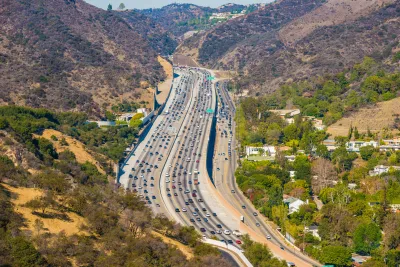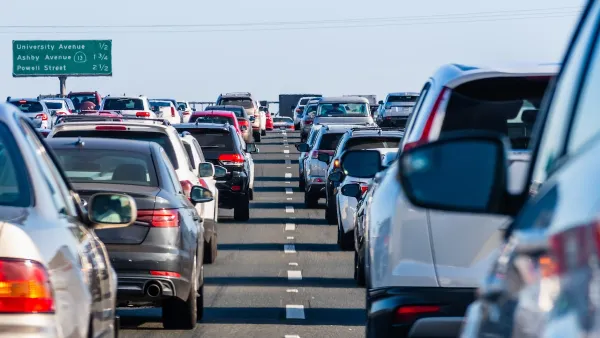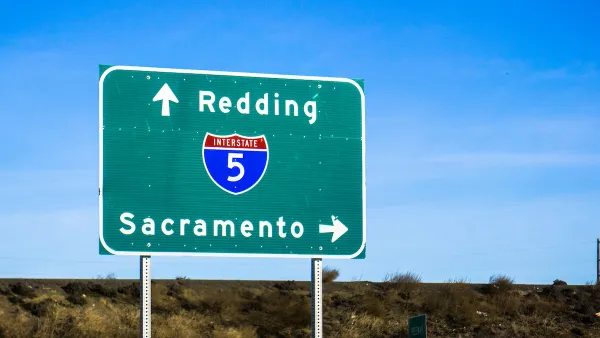If California wants to meet its climate goals, the state must stop funding its myriad road construction and expansion projects.

A new report calls on California to rethink its “traffic-creating, pave-the-earth approach to transportation,” highlighting the environmental and public health impacts of rampant freeway construction.
According to an article by Melanie Curry in Streetsblog California, despite the state’s efforts to support clean air and water policies, the inertia of the status quo and a fear of change “has led to focusing on difficult but politically plausible solutions like electric vehicles, cleaning up the electricity sector, and calling for low-carbon fuels.”
For the authors of the report from NextGen, those efforts are in part a distraction from lower-hanging, but more politically challenging, fruit: “As long as California keeps expanding highways to accommodate driving, all the other efforts - to increase EVs, to produce clean energy, to add bike lanes - will have been a waste of time.”
The report states, “Indeed, if California continues to expand highway capacity, the resulting increase in VMT will overwhelmingly cancel out the climate benefits of mode shift generated through concurrent transit improvements.”
The report suggests some solutions for creating a “smarter and better transportation system” that creates more jobs and improves quality of life and safety. Namely, “California needs to: align transportation funding with climate goals (as called for by the state Climate Action Plan for Transportation Investment, CAPTI); bring transparency and accountability to the project selection process (as attempted with several bills in the past few years that so far have failed to make it through), and improve oversight and rigor in agency analyses of project impacts (also the subject of numerous bills).”
The report also recommends limiting the use of “statements of overriding considerations,” a tool often employed by Caltrans and other transportation agencies to push road expansion projects through at the expense of housing or green space.
FULL STORY: California Has to Stop Building Freeways. Now.

National Parks Layoffs Will Cause Communities to Lose Billions
Thousands of essential park workers were laid off this week, just before the busy spring break season.

Retro-silient?: America’s First “Eco-burb,” The Woodlands Turns 50
A master-planned community north of Houston offers lessons on green infrastructure and resilient design, but falls short of its founder’s lofty affordability and walkability goals.

Delivering for America Plan Will Downgrade Mail Service in at Least 49.5 Percent of Zip Codes
Republican and Democrat lawmakers criticize the plan for its disproportionate negative impact on rural communities.

Test News Post 1
This is a summary

Test News Headline 46
Test for the image on the front page.

Balancing Bombs and Butterflies: How the National Guard Protects a Rare Species
The National Guard at Fort Indiantown Gap uses GIS technology and land management strategies to balance military training with conservation efforts, ensuring the survival of the rare eastern regal fritillary butterfly.
Urban Design for Planners 1: Software Tools
This six-course series explores essential urban design concepts using open source software and equips planners with the tools they need to participate fully in the urban design process.
Planning for Universal Design
Learn the tools for implementing Universal Design in planning regulations.
EMC Planning Group, Inc.
Planetizen
Planetizen
Mpact (formerly Rail~Volution)
Great Falls Development Authority, Inc.
HUDs Office of Policy Development and Research
NYU Wagner Graduate School of Public Service





























